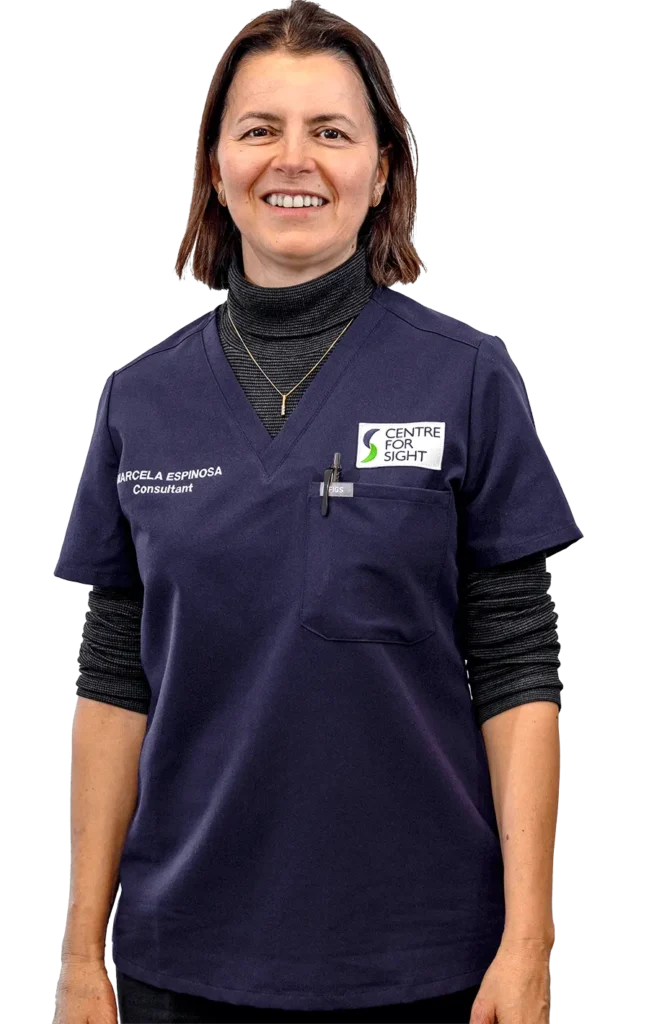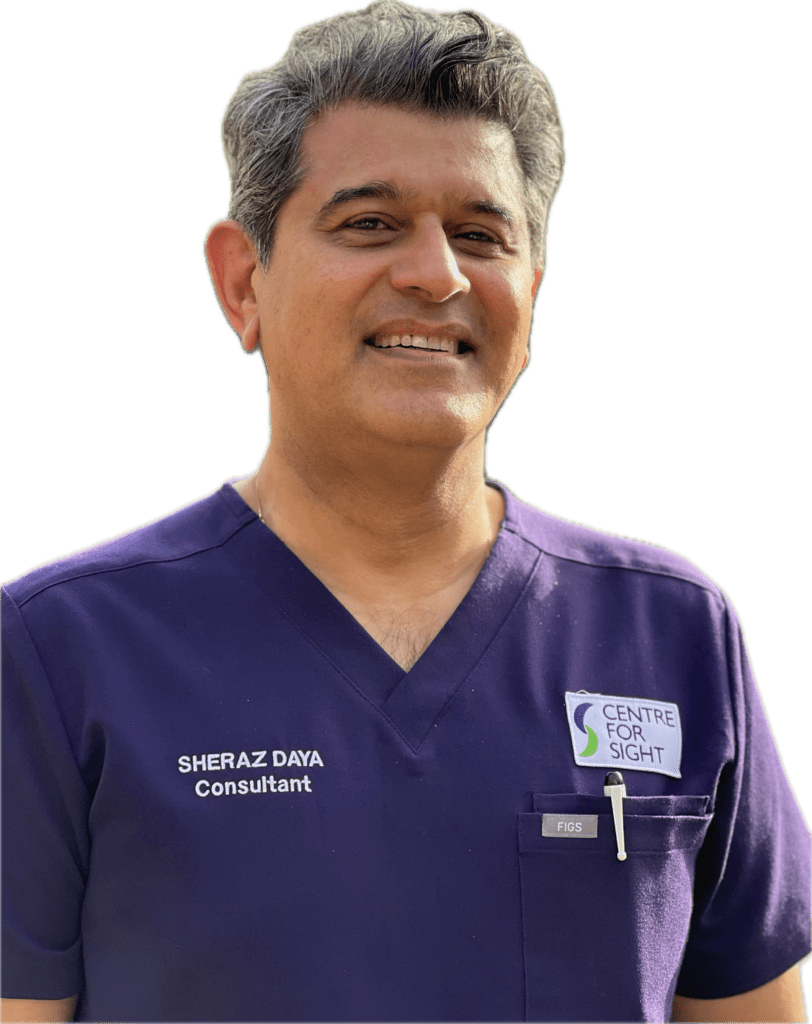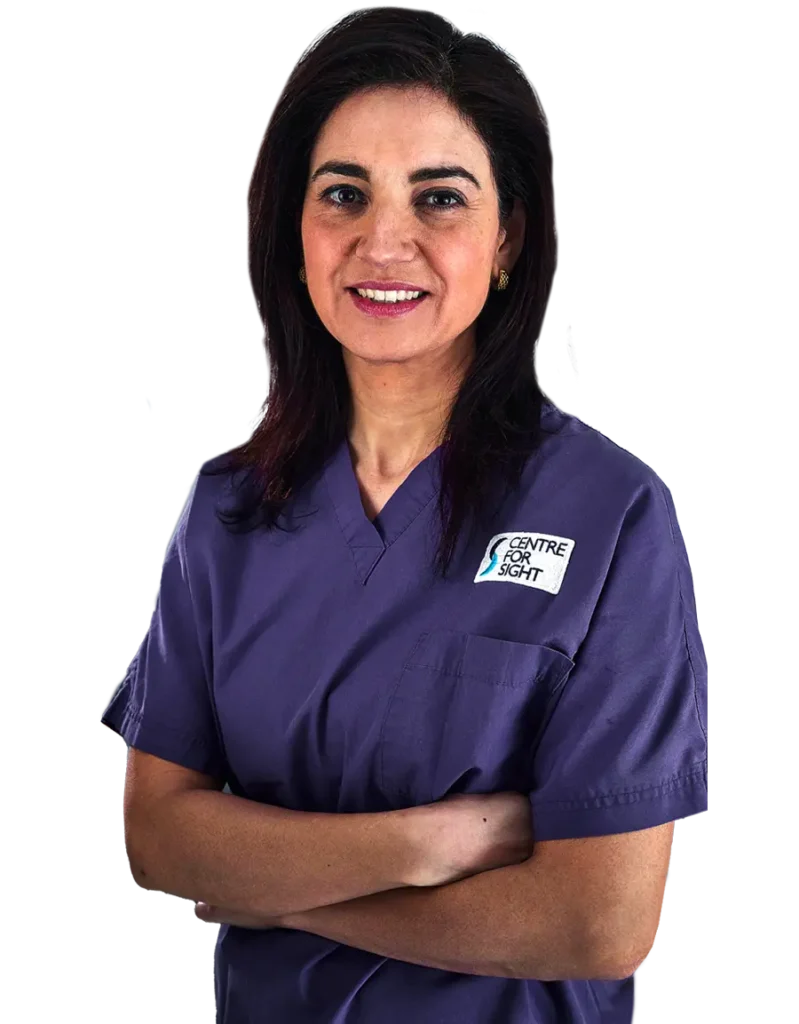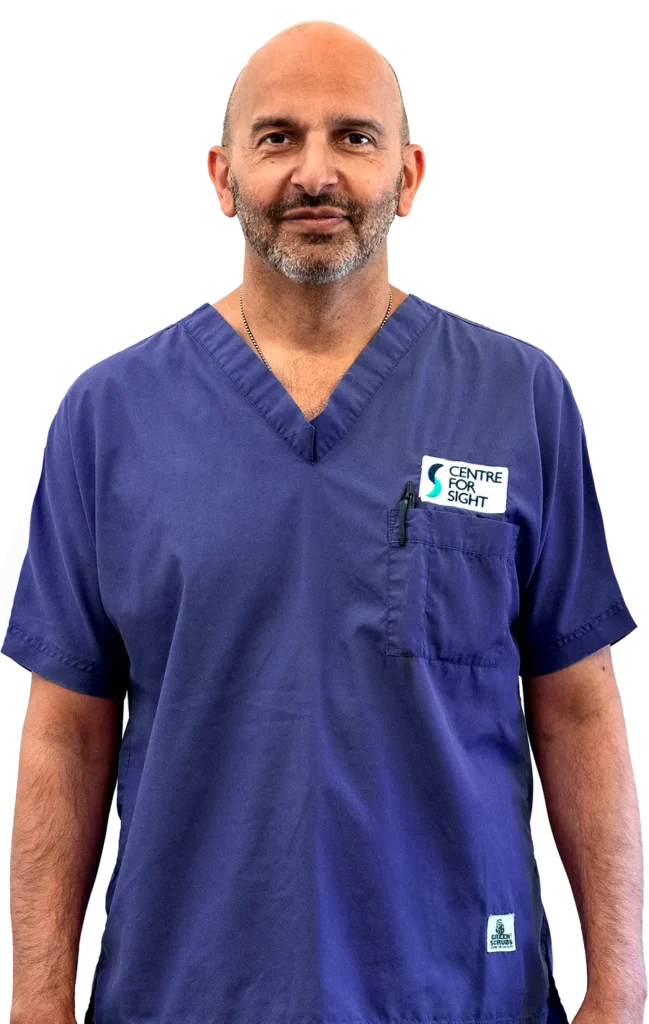Cataract is an eye condition which is a consequence of ageing and develops gradually over time. A cataract is a loss of transparency or a cloudy lens. The crystalline lens is a part of the eye that helps focus light rays on the retina. It is located inside the eye behind the iris. With age the lens becomes harder and leading to difficulties reading or Presbyopia. As time progresses the lens becomes cloudy and affects vision.
Symptoms of cataracts appear gradually overtime and may include:
- Blurry or cloudy vision
- Sensitivity to bright lights and glare
- Seeing halos or starbursts around lights
- Difficulty seeing clearly in low light or at night, especially when driving
For further reading about cataracts, read our Cataracts Eye Conditions page.










